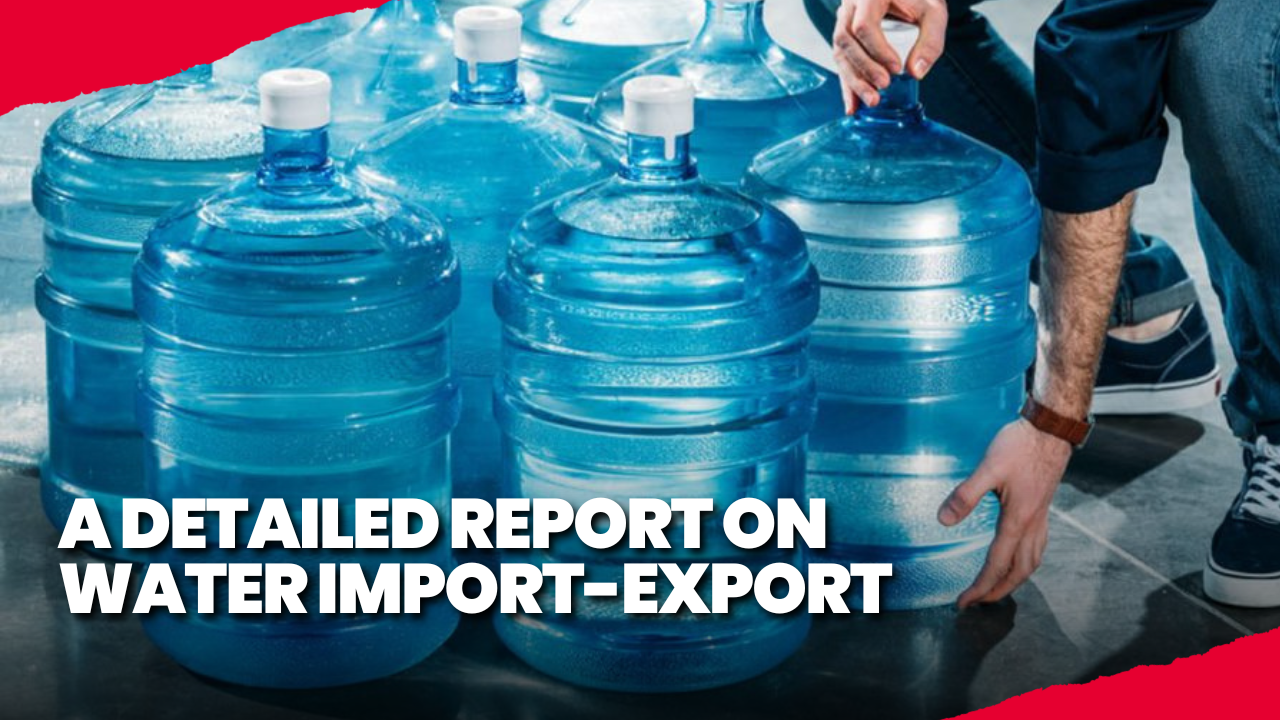
India exported three categories of water in this period: Mineral water (2,378,227 liters), aerated water (602,389 liters) and natural and other water (869,815 liters).
Water forms an essential part of every human being. Since it is a human necessity, it makes best sense to do business in. As a normal human being requires an average of 2-3 liters of water every day and world population is more than one billion (growing at 2-3% annually) the business opportunity is enormous and the potential is largely untapped. Increasing health concerns and unavailability of clean drinking water have led to the growth of the bottled water market in India.
The major bottled water brands operating in India are Bisley, Kinley, and Aquafina. In India, bottled water is sold in four main types – one-liter bottles, two-liter bottles, 500 milliliter bottles, 250 milliliter bottles, pouches, and barrels of 15-20 liters.
Top 3 Product Categories of Packaged drinking water Exports from India are
- HSN Code 22011010: HS: mineral waters
- HSN Code 84223000: HS: dish washing machines: machinery for filling closing sealing or labelling bottles cans boxes bags or other containers; machinery for capsuling bottles jars tubes and similar containers; machinery for aerating beverages
- HSN Code 39202090: HS: of polymers of propylene: other
Top 3 Product Categories of Snow Exports from India
- HSN Code 25262000: 25262000
- HSN Code 03011100: 03011100
- HSN Code 40082190: 40082190
Countries Importing From India
- UZBEKISTAN
- UNITED STATES
- BURKINA FASO
- UNITED KINGDOM
- TANZANIA
- VIETNAM
- ISRAEL
- GERMANY
- UNITED ARAB EMIRATES
- TURKEY
Top Importers Importing From India
- CENTRAL ASIA MEGASTAR LLC
- TWELLIUM INDUSTRIES CO LTD
- TIPP DISTRIBUTORS INC
- ECOLOOPUK LTD
- CONG TY TNHH SAMSUNG ELECTRONICS VIET NAM
- LLC CHARTAK AQUARESURS
- DYDO DRINCO UK LTD
- SHARIKAT ALGHAD LITIJARIT ALMAWAD AL GHITHAYYAH
- AL AIN FOOD AND BEVERAGES PJSC
Also Read This: A Detailed Report On Cosmetic Products Import-Export
Things to keep in mind
- Regulations and Trade Agreements: Exporting drinking water from India to African countries would involve complying with trade regulations and agreements between India and the specific African countries involved. It is important to understand the legal requirements and restrictions that may apply to such exports.
- Quality and Standards: The drinking water exported must meet the quality and safety standards set by both India and the importing African countries. Quality control measures need to be in place to ensure that the water meets all necessary requirements.
- Logistics and Infrastructure: Exporting drinking water involves logistics and infrastructure considerations, such as transportation, packaging, storage, and distribution. Adequate infrastructure needs to be in place to ensure the safe and efficient transport of the water to the destination.
- Environmental and Social Impacts: Exporting drinking water on a large scale may have environmental implications, such as increased carbon emissions from transportation. Additionally, there may be social considerations regarding access to water within India itself.
- Market Demand and Feasibility: It is essential to assess the market demand for imported drinking water in African countries and the feasibility of establishing a sustainable business model for such exports.
Challenges
- One main challenge is the cost of transporting water. Water is a heavy and bulky substance, so it would be expensive to transport it over long distances. Another challenge is the environmental impact of transporting water. It would require a lot of energy to pump water from one place to another, and this could have a negative impact on the environment.
- Despite these challenges, there are some countries that are already exporting water. For example, Israel is considering exporting water to Jordan and Saudi Arabia. And the United Arab Emirates is planning to build a desalination plant that could produce enough water to export to other countries in the region.
Analysis
The import of drinking water is a growing trend, as more and more countries are facing water shortages or water quality problems. The global market for bottled water is expected to reach $250 billion by 2025.
To export MINERAL/DRINKING WATER from India, you need to complete several documentation procedures, which may include the following
- Import-Export Code (IEC)
- Sales Invoice
- Certificate of Origin
- Bill of Lading/Airway Bill
- Phyto-sanitary Certificate: If required, obtain this certificate from the Agricultural and Processed Food Products Export Development Authority (APEDA)
- Other documents required on the basis of clients /country’s demand






